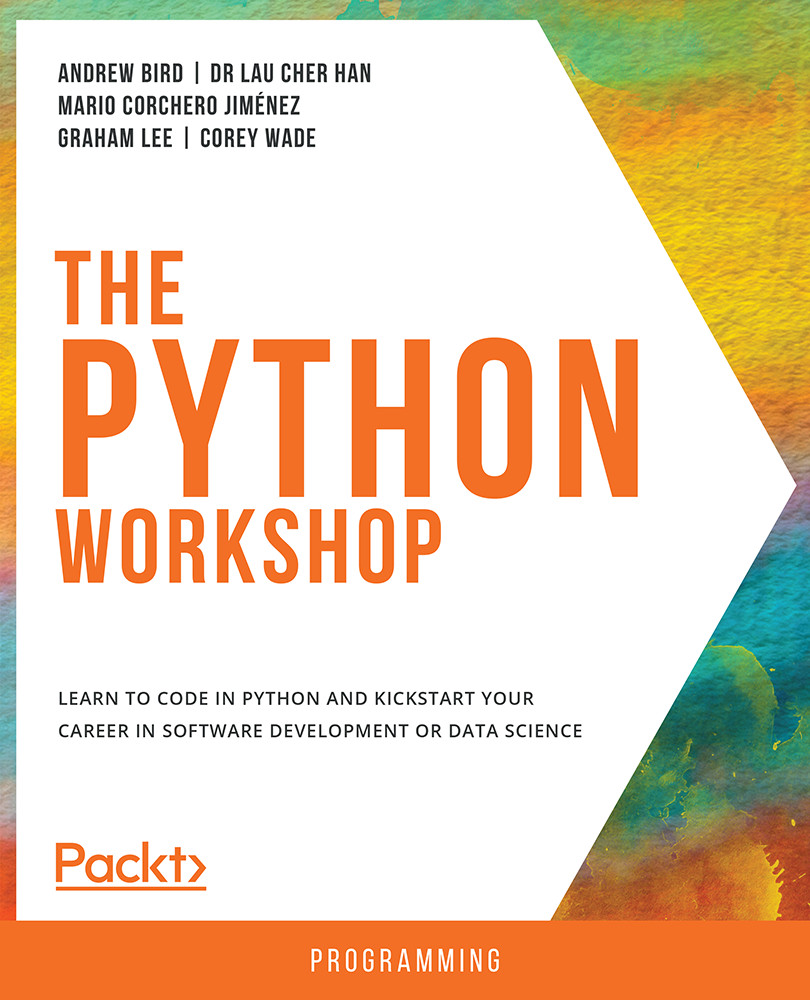-
Book Overview & Buying

-
Table Of Contents

The Python Workshop
By :

The Python Workshop
By:
Overview of this book
 Free Chapter
Free Chapter
 Sign In
Start Free Trial
Sign In
Start Free Trial


 Free Chapter
Free Chapter
Iterators are useful for describing sequences, such as Python lists and ranges, and sequence-like collections, such as your own data types, that provide ordered access to their contents. Iterators make it easy to work with these types in a Pythonic way. Python's library includes the itertools module, which has a selection of helpful functions for combining, manipulating, and otherwise working with iterators. In this section, you will use a couple of helpful tools from the module. There are plenty more available, so be sure to check out the official documentation for itertools.
One of the important uses of itertools is in dealing with infinite sequences. There are plenty of situations in which a sequence does not have an end: everything from infinite series in mathematics to the event loop in a graphical application. A graphical user interface is usually built around an event loop in which the program waits for an event (such as a keypress, a mouse click, a timer expiring...

Change the font size
Change margin width
Change background colour